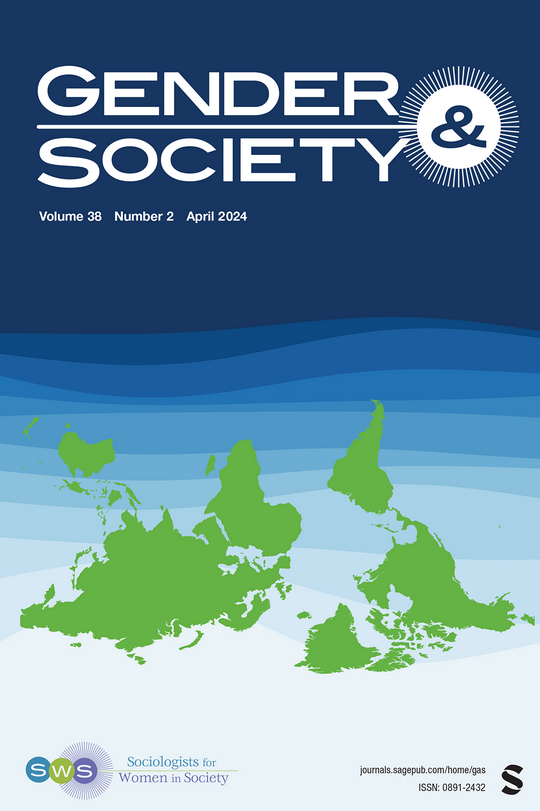“The Only Self-Defense I Have is My Wedding Band”: Doing Heterosexuality, Evading Gender Harassment, and Becoming Respectable in the Street
IF 7.2
1区 社会学
Q1 SOCIOLOGY
引用次数: 0
Abstract
The field of critical heterosexualities studies invites sociologists to untether heterosexuality from biology. In this article, I leverage the findings of 113 interviews with a racially diverse sample of cis and trans women to examine how women maintain everyday dignity in the street despite widespread gender harassment and systemic, racialized sexual inequalities. Drawing on social constructionist theory and applying an intersectional framework, I examine heterosexuality as a performance, uncovering how gender identity, race, and sexual orientation intersect to shape both the costs and benefits of “doing heterosexuality” in the street. Through practices such as wearing wedding rings, holding the hands of men friends, and displaying affection for men in public places, straight, queer, cis, and trans women creatively resist heteronormativity’s regulation of their social-sexual lives and strive to enunciate sexual unavailability; communicate the existence of a protector; and signal respectability by demonstrating conformity with racialized, cisnormative ideals of gender and sexual normativity. Findings demonstrate that racialized, queer, and trans participants tend to experience greater emotional costs and fewer symbolic rewards associated with “doing heterosexuality” than white, straight-identified, and cis participants. This intersectional analysis enriches extant research on gender and sexuality, illuminating the utility of the “doing heterosexuality” framework for uncovering intersections between heterosexual accountability and gender inequality across diverse organizational and interpersonal contexts."我唯一的自卫手段就是我的结婚戒指":做异性恋者,躲避性别骚扰,在街头受人尊敬
批判性异性恋研究领域邀请社会学家将异性恋从生物学中剥离出来。在这篇文章中,我利用对不同种族的顺性和变性女性样本进行的 113 次访谈的结果,研究了尽管性别骚扰和系统性、种族化的性不平等现象普遍存在,女性如何在街头保持日常尊严。借鉴社会建构主义理论并运用交叉框架,我将异性恋视为一种表演,揭示了性别认同、种族和性取向如何相互交织,从而形成在街头 "做异性恋 "的成本和收益。通过佩戴结婚戒指、握住男性朋友的手、在公共场合向男性示爱等行为,异性恋、同性恋、顺式和变性女性创造性地抵制异性恋对其社会性生活的规范,并努力阐明性的不可得性;传达保护者的存在;以及通过展示与种族化、顺式性别和性规范性理想的一致性来表示受尊重。研究结果表明,与白人、异性恋者和顺式参与者相比,种族化、同性恋和变性参与者在 "做异性恋 "的过程中往往会付出更多的情感代价,获得更少的象征性回报。这种交叉分析丰富了现有的性别和性行为研究,阐明了 "异性恋行为 "框架在揭示不同组织和人际背景下异性恋责任与性别不平等之间的交叉关系方面的实用性。
本文章由计算机程序翻译,如有差异,请以英文原文为准。
求助全文
约1分钟内获得全文
求助全文
来源期刊

Gender & Society
Multiple-
CiteScore
9.70
自引率
3.60%
发文量
78
期刊介绍:
Gender & Society promotes feminist scholarship and the social scientific study of gender. Gender & Society publishes theoretically engaged and methodologically rigorous articles that make original contributions to gender theory. The journal takes a multidisciplinary, intersectional, and global approach to gender analyses.
 求助内容:
求助内容: 应助结果提醒方式:
应助结果提醒方式:


